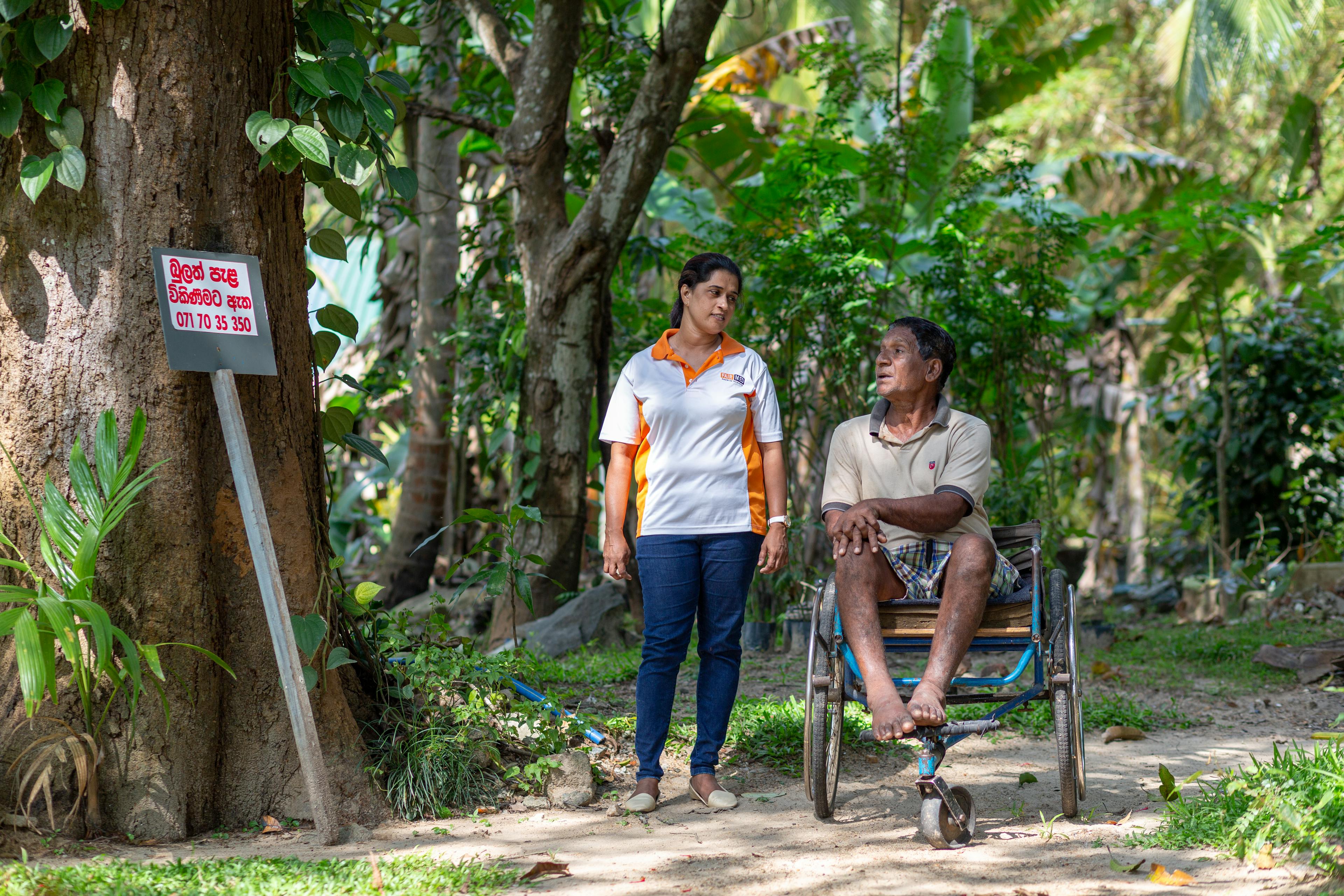Background
Extreme poverty - exacerbated by the current economic crisis - threatens food security and medical care for the population in Jaffna and Killinochchi. Together with the often poor access to drinking water and sanitation, this leads to a fertile breeding ground and the spread of Neglected Tropical Diseases (NTDs) such as leprosy, typhoid, elephantiasis, or worm diseases. In addition, the north of the country was shaken by decades of civil war. People lost land, property and their homes. Many suffered physical and mental trauma that negatively affected their health and ability to care for themselves and their loved ones. Quite a number of people have missing or disappeared family members as a result of the war. In Jaffna district alone, there are 33,353 women-headed families, and in Killinochchi district, there are 6,256 women-headed households. The majority of these families are in debt and do not receive financial assistance. They usually lack the means to get on their feet economically and health-wise. In addition, due to war injuries and untreated neglected tropical diseases, many people in this region live with disabilities.
The Project
With the project called Vaiharai (Tamil: dawn, figuratively: hope) FAIRMED aims to improve the living conditions of people in the districts of Jaffna and Kilinochchi. The focus is on the most vulnerable and disadvantaged people, i.e. people with disabilities, families headed by women and those affected by neglected tropical diseases. In the long term, the project aims to improve the health and living conditions of these vulnerable populations and promote gender equality. The local health system is strengthened through participation and ownership ("help for self-help") and the quality of public health care and its utilization is ensured. FAIRMED addresses NTDs by involving all stakeholders: by raising awareness among the population, by building and expanding the knowledge and skills of health workers, by increasing the quality of health services, and by actively and passively identifying cases of infection and disease (diagnosis, detection and treatment).
Objectives and Activities
The main objective of the project is to provide access to quality healthcare to the population in Jaffna and Kilinochchi districts. To achieve this main goal, the project has the following specific objectives, which will be achieved through the activities listed below, among others:
To strengthen the local health system for the prevention and control of NTDs
Enhanced awareness on NTDs amongst relevant stakeholders.
Capacity of health workers for quality NTD service improved.
Strengthened Active case detection for NTDs.
To enhance the quality of services for NTDs and the targeted vulnerable communities through inter-sectoral collaboration and partnerships
Project steering committee with relevant stakeholders established and operational.
Developed focused partnerships with existing civil society organisations.
Service delivery quality improved to address needs of vulnerable communities (mainly persons with disabilities).
To empower and enable the targeted vulnerable communities to improve service access and utilisation
Needs of the community identified through participatory action.
Project stakeholders made aware of the needs of the vulnerable communities.
Community groups promoting social cohesion engaged, reactivated or established.
To promote evidence-based approaches in addressing NTDs and needs of the targeted vulnerable communities through effective knowledge management
Relevant data-driven insights generated and utilised to drive project activities.
Sustainability and Monitoring
All FAIRMED projects are implemented in cooperation with the local official agencies and with the inclusion of the population on the ground. The regional FAIRMED country offices are staffed exclusively by local employees. With this approach, and aided by consistent monitoring, problems can be identified in a timely manner, causes can be analysed, and methods and objectives can be adapted where necessary. The direct integration of health ministers and partner organisations also ensures that projects can be transferred at a later point and continued without the support of FAIRMED.
Beneficiaries
The project focuses on improving the health of the most disadvantaged people in the districts of Jaffna and Killinochchi. According to current figures, around 75,000 people in the project area live with disabilities, and around 40,000 households are headed by women. The high extent of neglected tropical diseases cannot be precisely quantified at present, as only a few early detection and awareness campaigns are being carried out. Thanks to the project, it will be possible to determine the exact number of people affected. In addition to the particularly disadvantaged people, the rest of the population (around 740,000 people) will also benefit from the project, as they also live in the region and thus benefit from the improved healthcare system.
No one should suffer or die from a curable disease
Suriyarachchi Nayani • Country Coordinator Sri Lanka
Support FAIRMED